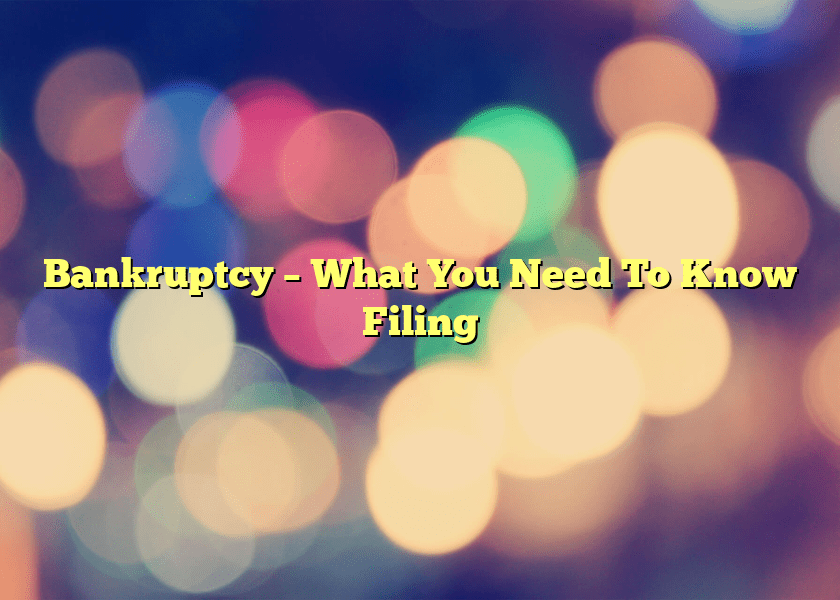Bankruptcy – What You Need To Know Filing
When there’s no other way for the business to remain afloat, then you can consider filing for bankruptcy. It’s identifised as starting new while you settle all your obligations by legal means. You can avail of four forms of bankruptcy.
Each of these bankruptcy laws has been taken from the bankruptcy code, and they possess particular parameters that must be fulfilled for the debt to be considered ended.
Debt repayment (chapter 13), family farmer or fisherman (chapter 12), reorganization (chapter 11), as well as liquidation (chapter 7) are the fundamental kinds of bankruptcy. Bankruptcy laws are treated differently and so should be the kinds of bankruptcy.
The chapter 7 assures payment of debts through assets owned by the debtor. Properties and equipment shall be evaluated by a court appointed trustee. He also keeps the assets. If these assets are assessed and their worth known, they would be transformed into cash.
The cash would then be paid to your different creditors. Once the court proclaims that you have filed a chapter 7 bankruptcy this action will remain on your public bankruptcy record for around ten years. The process of bankruptcy is varied with the other forms of bankruptcy.
Companies, meanwhile, can take opportunity of chapter 11. This encourages reorganization of the company so the corporation can earn more profits. These money shall then be utilized to settle all debts to creditors.
You could utilize the time in repayment of debt to search methods on how you can handle obligations more efficiently so you could pull your corporation from financial predicaments. A lawyer can help you discover the ideal free credit repair. It’s also smart to seek their advice as chapter 11 could be a very complex procedure.
Fishermen and family farmers could now repay their obligations with their earnings in the future. Chapter 12 is specifically created for that purpose and for those kinds of individuals alone.
You could pay your obligations over a specific period with chapter 13. If approved by the court, you could have until 5 years to pay your debts.
A legitimate financial problem would be subject to a direct stay order to be issued by the court when you’re filing for bankruptcy. This way, your creditors shall have to deal with your lawyers with regards to payment terms. Your creditors cannot ask you personally.
